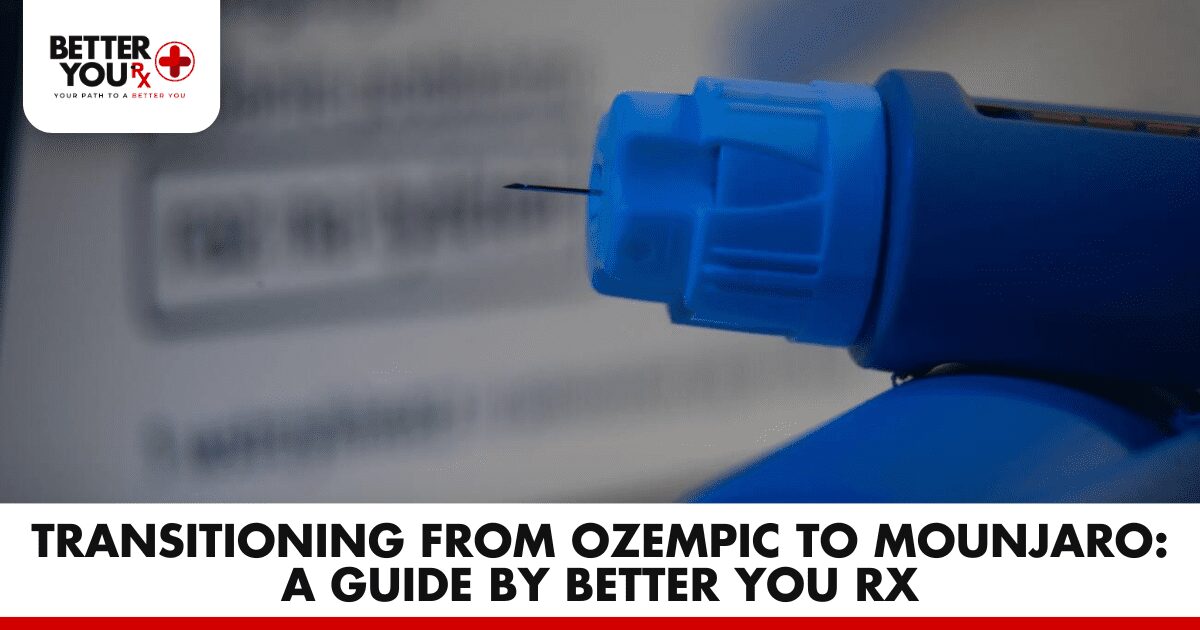Can Prediabetic Patients Use Semaglutide? A Better You RX Guide
Welcome to Better You RX, your reliable source for cutting-edge health advice and trusted information. Today, we’re examining whether prediabetic patients can safely use Semaglutide.
Understanding Prediabetes and Semaglutide
Prediabetes, marked by slightly elevated blood glucose levels, is often a stepping-stone towards Type 2 diabetes if not timely managed. One potential intervention is through medications such as Semaglutide. The key active ingredient found in Ozempic and Wegovy, Semaglutide is typically prescribed to stabilize blood glucose levels in individuals with Type 2 diabetes. Notably, it has also been reported effective for weight loss in patients with normal blood sugar levels.
Semaglutide for Prediabetes: The Safety Prospects
The majority of prediabetic patients should be safe to take Semaglutide. However, it’s crucial to consider any other medications already being consumed, such as metformin, which is widely used to reduce blood glucose levels in prediabetes. Combining two glucose-acting medications may predispose you to hypoglycemia, a condition characterized by dangerously low blood sugar levels. Therefore, it’s advisable to always consult your doctor before adopting new medication, especially if your blood glucose levels have been flagged as irregular.
Semaglutide and Non-Diabetic Hyperglycemia
Interestingly, Liraglutide, a medication similar to Semaglutide, is actually recommended for patients with non-diabetic hyperglycemia, or prediabetes. This is because it operates as a GLP-1 Receptor Agonist, assisting in lowering blood glucose levels to within a normal range. By preventing abnormal blood glucose levels from escalating, we can help halt the development of critical health conditions.
In addition to its blood sugar-controlling properties, Semaglutide also serves as an appetite suppressant, aiding weight loss, a beneficial factor for many prediabetic patients. This dual action can often stabilize blood glucose levels, making it a potentially ideal option for patients with non-diabetic hyperglycemia.
Professional Healthcare Consultation: The Importance of Blood Glucose Monitoring
At Better You RX, you will be asked about your blood glucose levels before beginning any weight loss medication consultation. Our competent healthcare team utilizes this information to make informed decisions about the suitability of your treatment. If you’re unsure about your blood glucose levels, you can request a test from your doctor. Alternatively, some pharmacies offer diabetes screening tests to verify your glucose levels using blood and/or urine samples.
- Semaglutide: Licensed Use and Off-Label Use
Currently, Semaglutide is only licensed for Type 2 Diabetes Mellitus (T2DM). Hence, if you’re prediabetic, you’d be using Semaglutide off-label. This does not imply the medication is unsafe; it simply indicates its usage extends beyond the product’s licensed intention.
Safeguarding Patients: Priority at Better You RX
Patient safety is at the heart of Better You RX’s commitment. We would never propose any medication we do not deem fit for you. Should you have any concerns about prediabetes or Semaglutide, we strongly advise meeting with your doctor.
Completing a consultation with Better You RX ensures a thorough patient assessment, with our prescribers available to address any questions or concerns. As always, our prescribers will make the safest, most appropriate decision before authorizing any medication prescription.
At Better You RX, we’re committed to guiding you toward a healthier, better you!










